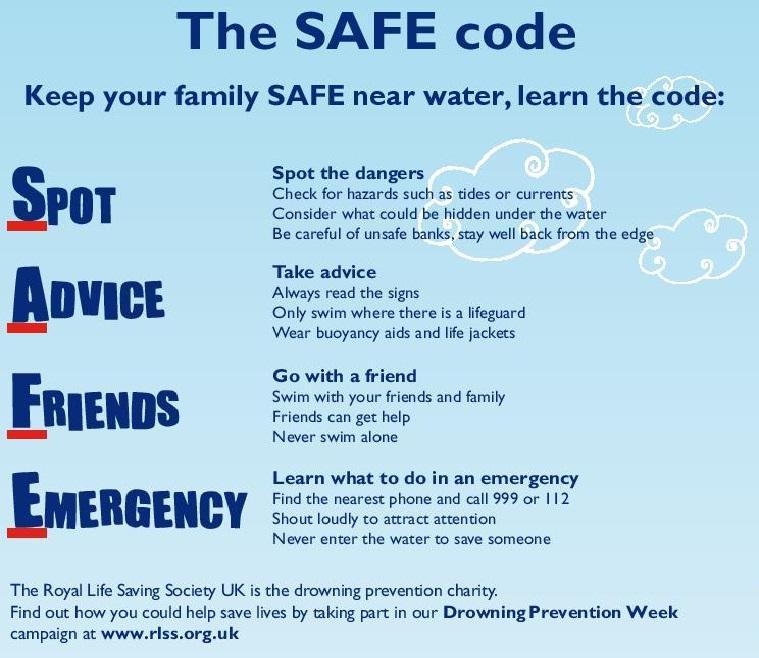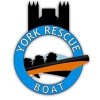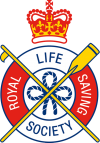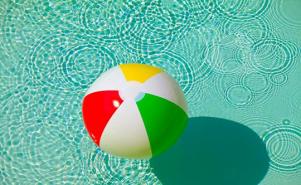
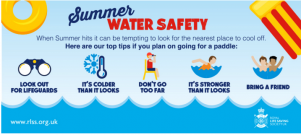
15 Top Tips to staying safe in the water this summer
Summer has arrived and with it brings the temptation to jump in the pool, splash in the sea and generally just cool down! However, sometimes these urges lead to a lack of respect for the water which can result in catastrophe. It is important to understand the risks that water can hold and be aware of these so that you can be as prepared as possible to keep yourself and your family safe this summer, and always!
Here are fifteen of our top tips for staying safe in the water this summer:
- Watch children closely – young children can drown in as little as 2 inches of water so whenever you are near water make sure they are supervised.
- Check for signs and flags and make sure you know what they mean, if you aren’t sure, check out the meanings here.
- If you’re not a swimmer, take some lessons to improve your confidence before going on holiday/to the beach, find both children and adult lessons nationwide here.
- Invest in floatation devices – these will not only help reduce any risks but will also add fun to the swimming experience too! But please do not use them in open water!
- Follow any pool rules and take time to check the depth, water flow and layout of pools so that you know where to take extra care.
- Don’t swim within 48 hours of having a sickness bug to keep both yourself and others safe from spreading any infection.
- Always wait an hour after eating to swim to avoid any cramps or nausea.
- On beaches check when the tide will be high and low and make sure that you won’t be cut off from the beach exit by the rising tide.
- Only swim at the beach when there is a lifeguard present.
- Be aware of dangerous rip-currents, you can learn how to spot these and what to do if you get caught in one here.
- Do not swim near to, or dive from rocks, piers, breakwater or coral.
- Always swim parallel to the beach and close to the shore and if you do get into to any trouble wave your arm and shout but please try to remain calm and don’t exhaust yourself.
- Don’t swim alone, making sure you have a swimming buddy close can
- If you witness an emergency, know how to call for help, whatever country you are in, you can find a full list of emergency contact details here.
- Know the SAFE code –
- S – spot the dangers
- A – follow safety signs and advice
- F – stay close to a friend or family member
- E – shout for help and know the emergency number to call in the country you are in
Now it’s time to pack your swimsuit, sunscreen and inflatables and enjoy your summer! Happy swimming!
